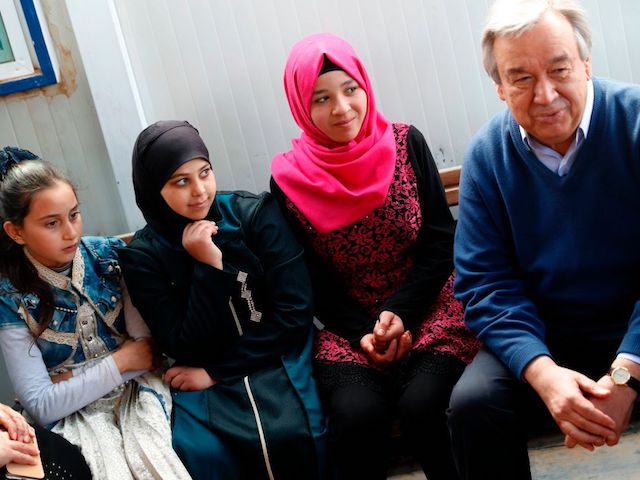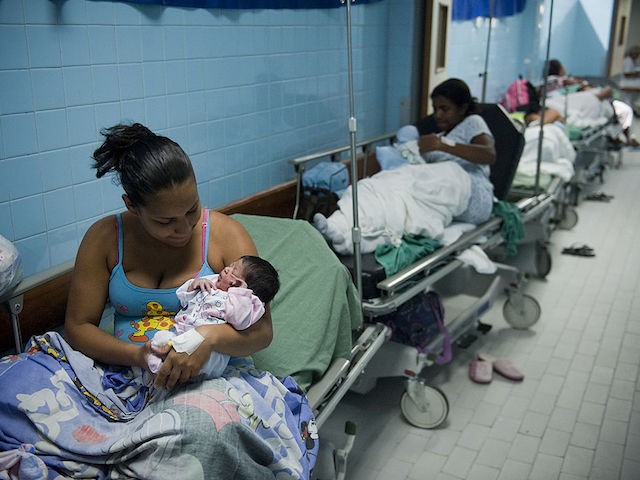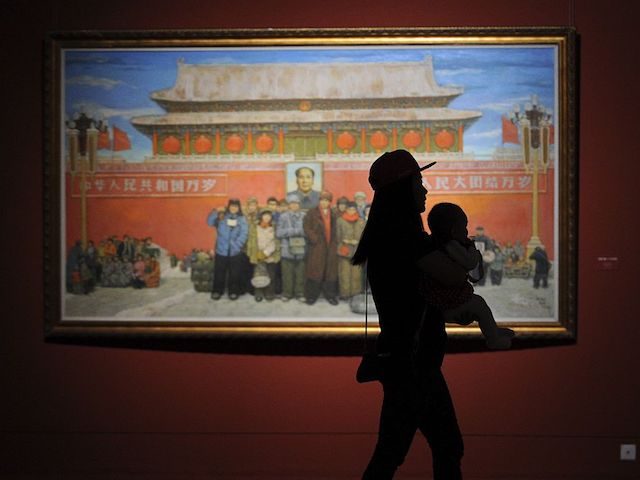United Nations Secretary-General Antonio Guterres, through a spokesman, declared “reproductive rights” the paramount struggle of humanity this week. He is right, but not in any way recognizable to him or his organization.
Support for abortion around the world is slowly diminishing today. Even so, in practice, the world is far more hostile to the idea of having a baby than killing it – from the near-total lack of prenatal care in parts like Africa and South America to Japan’s infamous “maternity harassment,” from China forcibly fitting tens of thousands of Uyghur women with IUDs to American celebrities and megacorporations promising women everything from an executive title to a Golden Globe statue if they reject their internal desire for motherhood.
“The Secretary General has long believed that sexual and reproductive health and rights are the foundation for lives of choice, empowerment and equality for the world’s women and girls,” Farhan Haq, Guterres’ spokesman, said on Tuesday. “Without the full participation of 50% of its population, the world would be the biggest loser.”
“Women should always have the right to choose when it comes to their bodies and their health,” Tedros Adhanom Ghebreyesus, the head of the U.N.’s World Health Organization (W.H.O.), similarly proclaimed on Friday. “Restricting access to abortion does not reduce the number of procedures — it drives women and girls towards unsafe ones. Access to safe abortion saves lives.”

United Nations Secretary General Antonio Guterres (R) talks to Syrian women and girls during a visit to the Zaatari refugee camp which shelters some 80,000 Syrian refugees on the Jordanian border with war-ravaged Syria on March 28, 2017. (THOMAS COEX/AFP via Getty Images)
By “reproductive rights,” Guterres meant abortion – the “right” to kill a child (Tedros openly discussed only abortion). The two were responding to the illegal leak of a draft Supreme Court decision overturning Roe v Wade, which concluded in 1972 – before ultrasound technology and non-invasive prenatal testing was the order of the day in America – that a woman’s right to “privacy” was a constitutional guarantee that prevented states from stopping her from killing her child. The new decision, which Supreme Court Justice John Roberts confirmed is not final, would leave abortion laws to the states, not outlaw abortion, as leftists have disingenuously argued (never mind ban interracial marriage or outlaw homosexuality, as they have somehow concluded).
The debate around Roe on the left this week largely takes for granted the idea of abortion (and infanticide, as former Virginia Governor Ralph Northram famously promoted) as a liberalizing tool in women’s lives and the concept of motherhood, in essence, as 18 years of slavery. The reality for women in most of the world does not align with this view – often most loudly proclaimed from the summit of the world’s elite, out of the mouths of men.
Women around the world have to fight everything from mosquitos to Amazon human resources to fulfill the dream of motherhood. Societies of all economic statuses are actively hostile towards mothers and children. And for the few who do give birth, few things are more diverse than the number of ways the world tries to strip mothers of the power to raise their children.
Naturally, disease and lack of access to pre- and postnatal care are the biggest threats to motherhood in underdeveloped countries. Mosquito-borne diseases like malaria and Zika virus (which causes cerebral deformations in unborn children) are paramount threats. Sub-Saharan Africa, Southeast Asia, and remote parts of Latin America – often tropical climates where mosquitos thrive – consistently document the lowest rates of access to prenatal care.

Mothers and their newborns rest in a maternity center in Caracas, on December 15, 2011. (LEO RAMIREZ/AFP via Getty Images)
In socialist Venezuela, for example, dictator Nicolás Maduro’s plundering of the healthcare system sent maternal and infant mortality rates skyrocketing in the latter half of the 2010s. “Between 2015 and 2016, maternal deaths grew by 65 per cent and child mortality after six days of being born increased by 53 per cent” in Venezuela, according to the United Nations. The Maduro regime has essentially stopped publishing health statistics after global observers began pressuring the socialists to fix the problem. Venezuela’s leftist constitution has a right to health care enshrined in it, but under socialism the country functionally does not have a healthcare system. Abortion is illegal there, but increasingly popular due to the lack of access to most major contraceptives, along with nearly every other medical product.
Continue reading: Breitbart.com






Leave a Reply